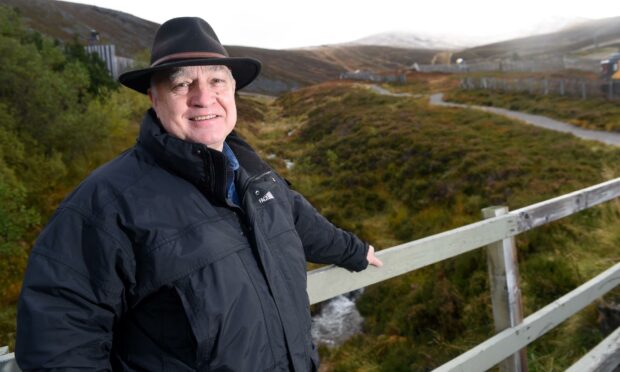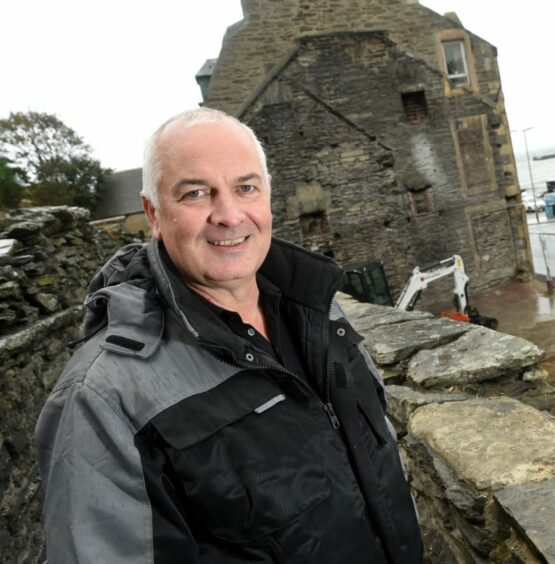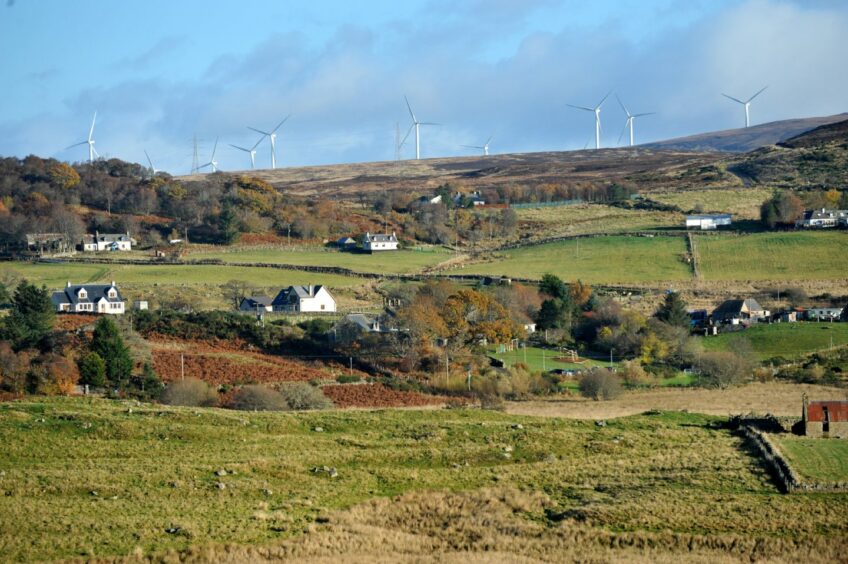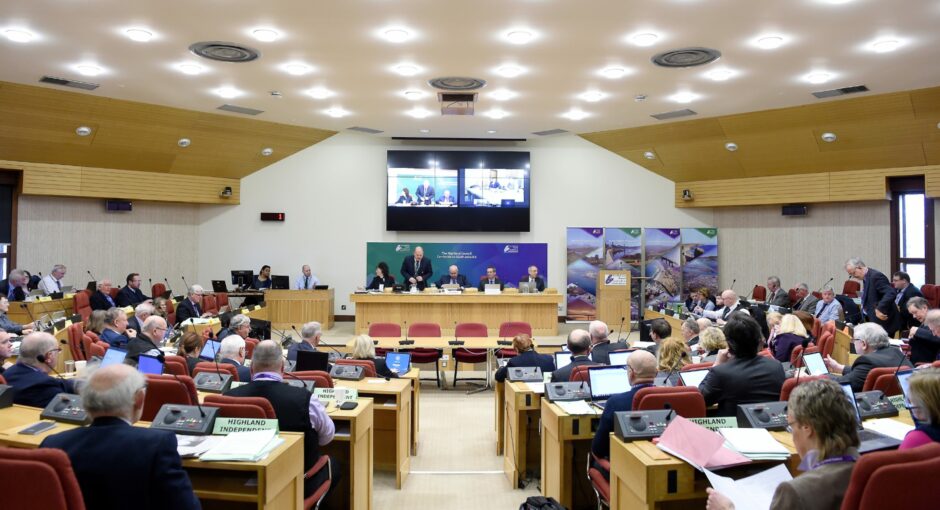Devolved power, flexible working and smart budgeting – just some of the modernisation plans floated by councillor Bill Lobban.
The former Highland Council convener hopes to get back in the seat next term. And with a new coalition deal agreed with the SNP, he may also take the role of deputy leader.
Mr Lobban is one of the most experienced members in the chamber, and he’s known for not mincing his words.
Case in point, when asked for his views on the political fallout to the SNP-Independent deal, he said: “I’m not too bothered what the Highland Liberal Democrats are saying on Facebook.
“My wife has more followers and she mostly posts about bees.”
Both the Lib Dems and the Conservatives have fired shots. Each had hopes of forming their own minority administration.
The Tories say the SNP will pander to Holyrood, while the Liberal Democrats have challenged independent councillors to show their political colours.
But a defiant Mr Lobban insists they’re all missing the point.
“Whichever way an independent goes they get criticised for going with one political party or another, but our focus is on the people of the Highlands. During negotiations with the SNP group we got the impression that their focus was on the people of the Highlands too.
“We had our first group meeting yesterday and the word politics was never mentioned. It was all about our joint administration.”
Council must be ready to help
Mr Lobban says the Independents weren’t keen on a minority administration, and wanted stability to deliver for the Highlands.
“We are looking forward to doing things that affect people’s lives and their real problems,” he said. “The cost of living crisis, the cost of energy, all that is magnified in rural Highland. We have to help if we can.”
He describes the last political term – interrupted by Covid – as the most challenging time for local government since the Second World War. Highland has a long way to go in recovering.
“We’re the size of a small country with the population of a medium-sized town,” he said.
“We have all the problems associated with both.”
How will the new administration tackle those problems? If elected on Thursday, Mr Lobban wants to help deliver a more modern and responsive council.
“Localism is now the way to go, especially because we have different priorities in different areas,” he said. “The idea of centralised power is absolute nonsense. As much as possible needs to be devolved to the area committees.”
Mr Lobban accepts that the last administration made progress but “probably did not” really deliver on that front.
He believes localism won’t work until budgets are devolved alongside power – and he hopes to bring proposals to council within the next 12 months.
Grasping the budget nettle
The budget itself needs a whole new approach.
“It’s thinking not just outside of the box but flinging the box away in terms of how we fund capital investment projects,” said Mr Lobban. “That’s something we thought long and hard about in the last five years but never quite got there. Some other councils have been far more innovative.
“We have to find ways to invest the council’s money carefully so we get a return on that investment and the returns can be spent on the things we really want to deliver for local people.”
Mr Lobban also wants a better funding deal from both governments – regardless of political colour.
“We don’t get a fair share from either one,” he said. “There are many things I think should be funded centrally that are not. We get increases on our budget but we also get told how to spend that money. I’d like to see less of that, and more increases where people in Highland can decide how it’s spent.”
Asked if coalition with the SNP will help, he said “It certainly won’t be detrimental to have the ear of Government ministers”.
‘The debating chamber still has its place’
Yet local and national politics have an uneasy relationship. In Highland more than any other region, cross-party working is essential to making progress.
Mr Lobban believes the role of the chamber is essential in that respect.
“We should be speaking to all sides, to senior politicians right across the area because we will need their assistance,” he said. “The debating chamber still has its place. It is in many ways a better place to do business and to listen to the views of members than on the end of a TV screen.”
While small, informal meetings will stay remote, the bigger political meetings will take place in the Inverness chamber.
“I like the debate in the chamber – it’s a major part of seeing good governance in Highland,” Mr Lobban said. “It gives the ability for members to get their question or motion heard in public and build a relationship with other members, cross-party.”
“If I am re-elected as convenor on Thursday I will be there to represent all the members. It won’t be about politics. For the benefit of the Highlands, groups of all political parties or none will be able to get together and see the way forward.”



